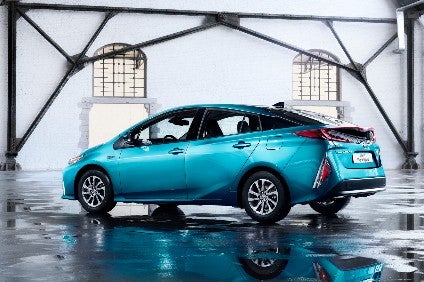
The UK automotive industry has once again beaten CO2 targets, with average new car emissions down for the 19th consecutive year, according to the Society of Motor Manufacturers and Traders (SMMT), but the automakers’ lobby group is now saying a vendetta on diesels could slow progress.
The annual SMMT New Car CO2 Report 2017 said carbon tailpipe emissions fell to a record low in 2016, with new cars averaging just 120.1g/km. This beats the previous year’s record by 1.1% and 2000 levels by more than a third (33.6%). Average new van CO2, fell 1.9% to a new low of 173.7g/km, ahead of the 2017 deadline for the pan-European target of 175g/km.

Discover B2B Marketing That Performs
Combine business intelligence and editorial excellence to reach engaged professionals across 36 leading media platforms.
The SMMT said the reduction was thanks to “billions of pounds worth of investment” in new advanced engine, fuel and battery technology, as well as increasing use of lightweight materials such as aluminium and composites. The growing alternatively fuelled vehicle (AFV) market and the shift of consumers towards diesel cars, which emit on average 20% lower CO2 than petrol equivalents, have also been critical to this success.
“The industry has achieved tremendous gains, but changes in consumer buying behaviour away from diesel in 2016 have caused the rate of progress to slow. UK motorists registered a record number of diesel cars in 2016, but market share for this fuel type fell by 0.8%,” the SMMT said.
Although the UK now has Europe’s largest market for zero emission capable cars, accounting for almost a quarter (23.8%) of EU electric and plug-in hybrid registrations in 2016, the growth in AFV demand slowed, from 40.3% in 2015 to 22.2% last year. The preference for SUVs over smaller cars continues to make CO2 reduction progress much harder.
If these trends continue, the UK’s contribution towards the EU target of 95g/km average CO2 in 2021 will become tougher, requiring a 20.9% cut in CO2 emissions over the next five years, or 4.6% per year.
“Of great concern is the current anti-diesel agenda, which fails to distinguish between old models and the latest cleaner vehicles on sale and which could have a negative effect on future CO2 reduction progress,” the SMMT said.
“Of great concern is the current anti-diesel agenda, which fails to distinguish between old models and the latest cleaner vehicles on sale and which could have a negative effect on future CO2 reduction progress,” the SMMT said.
There are also fears that changes to vehicle excise duty (VED) from 1 April 2017 could have a further negative impact. Under the new system, two thirds (66%) of the AFVs currently on the GBP0 standard rate will be subject to an annual flat charge of GBP130, in addition to varying levels of first year tax. Meanwhile, a GBP310 surcharge for five years for cars with a showroom price of GBP40,000 could affect demand for some of the lowest emitting vehicles – which are invariably more expensive than conventional technologies. As a result, take up of innovative technology such as hydrogen fuel cell and plug-in hybrid vehicles could suffer.
SMMT chief executive, Mike Hawes, said: “The automotive industry has some of the most challenging CO2 reduction targets of any sector and continues to deliver reductions as it has for nearly two decades.
“For this positive trend to continue, modern low emission diesels and AFVs such as plug-ins, hydrogen and hybrids must be encouraged with long term incentives. Turning our back on any of these will undermine progress on CO2 targets as well as air quality objectives. The UK has a successful track record in encouraging these new technologies but this must be maintained through a consistent approach to fiscal and other incentives.”






